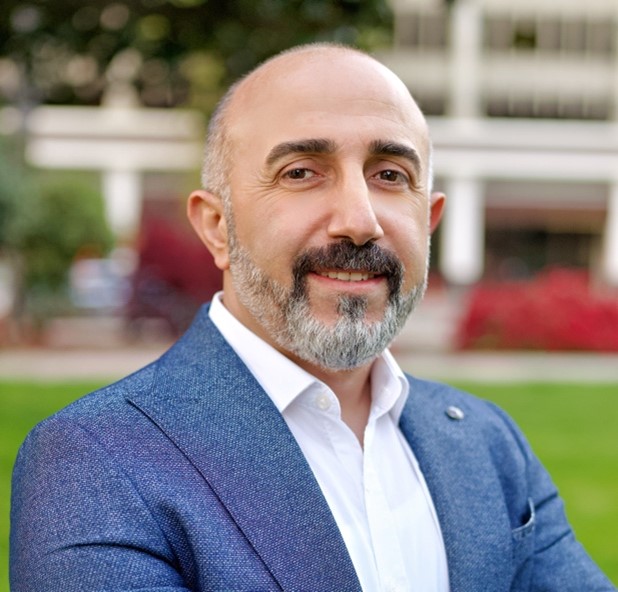A More Sustainable Future is Possible: Let's Explore the Most Efficient Ways to Transform the World Together
INDsigt ved Ozcan Gulacar Department of Chemistry Education at University of California, Davis.
Sprog: Oplægget holdes på engelsk
Language: The presentation will be in English
It is possible to participate on zoom.
 The world faces numerous environmental and social challenges that demand new approaches and expectations for science education. It is only possible to overcome these challenges if every person, regardless of their socio-economic status, feels responsible for all the harm has been done to the nature and learns what needs to be done to protect the environment. Educators, particularly science educators, have a tremendous obligation to ensure that their students are well-equipped and determined to achieve these crucial objectives before it is too late. Despite the scientific community's recognition of the importance of this mission, many chemistry students have lost interest in attempting to fully comprehend the topics presented, as the classroom emphasis has shifted from investigating global and local socio-scientific issues to covering abstract principles and from investigating real-life mysteries to conducting cookbook-style experiments.
The world faces numerous environmental and social challenges that demand new approaches and expectations for science education. It is only possible to overcome these challenges if every person, regardless of their socio-economic status, feels responsible for all the harm has been done to the nature and learns what needs to be done to protect the environment. Educators, particularly science educators, have a tremendous obligation to ensure that their students are well-equipped and determined to achieve these crucial objectives before it is too late. Despite the scientific community's recognition of the importance of this mission, many chemistry students have lost interest in attempting to fully comprehend the topics presented, as the classroom emphasis has shifted from investigating global and local socio-scientific issues to covering abstract principles and from investigating real-life mysteries to conducting cookbook-style experiments.
This talk aims to shed light on the challenges of developing and implementing relevant, rich, and contextualized curricula by underlining the perspectives and efforts of chemistry educators primarily from North American universities. In addition, the talk will highlight the positive effects of incorporating socio-scientific issues such as phosphate sustainability into the General Chemistry curriculum on students’ self-efficacy and motivation. Finally, the talk strives to emphasize the important role that chemistry educators play in fostering social responsibility in students and empowering them to address the greatest global challenges facing humanity in order to build a brighter and more sustainable future.
Bio: Ozcan Gulacar is a Professor of Chemistry Education at the University of California, Davis. He holds a master's degree in Physical Chemistry and a Ph.D. in Science Education. In his current position, he teaches primarily General Chemistry courses and first-year seminars to introduce undergraduates to chemistry education research and the UN Sustainable Development Goals. His primary research interests include investigating interactions between cognitive and affective domains in the context of socio-scientific issues, sustainability, problem-solving, and knowledge structures. In addition to teaching and conducting research, he has designed and organized workshops for high school teachers and professors on the implementation of social constructivist methods and the effective use of technological tools in science classrooms.
FORMAT: HYBRID. The seminar takes place at Institut for Naturfagenes Didaktik, NBB, Rådmandsgade 64, Kbh. N, in room 02.0.H.154. If you are unable to participate physically, it is also possible to participate via Zoom. Please indicate in the registration how you plan to participate.
REGISTRATION: https://eventsignup.ku.dk/indsigtseminarraekkeforaar2024
Participation is free and all interested are welcome. We will appreciate your registration before 27 May.
Contact indsigt@ind.ku.dk if you have any questions.
INDsigt-seminars are public seminars on science education. Read more on the Danish website: INDsigt - seminarrække
The se
